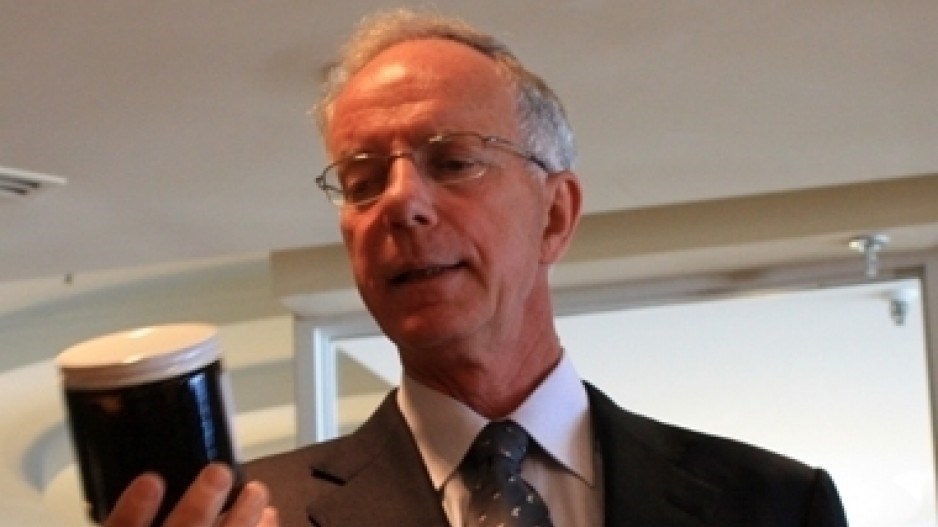As the owner of more than 150 newspapers, David Black says he’s wealthy enough – he doesn’t need to get into the oil and gas business.
But as an avid sailor, he shares the concerns many British Columbians have about a heavy oil spill off the coast, should the Northern Gateway pipeline proceed.
So he wants to build a $16 billion oil refinery near Kitimat.
“Any risk of a supertanker spill of bitumen will be eliminated,” Black told BC Chamber of Commerce members last week. “Shipping gasoline, jet fuel and diesel is much safer.”
Some analysts doubt a good financial case can be made for a West Coast refinery.
But Richard Cooke, senior managing director for the Americas and Africa for Oppenheimer-
Investments Group, said last week that investors are already lined up to provide the debt financing to build the refinery and associated infrastructure, which would bring the project cost to $25 billion.
Black has not revealed who the refinery owners would be, but said the ownership would be 100% Canadian.
Located 25 kilometres north of Kitimat, the refinery – which Black said would be one of the world’s largest – was originally estimated to cost $13 billion. But in an effort to live up to the project’s name – Kitimat Clean – Black wants to use new technology developed by Alberta’s Expander Energy to reduce carbon emissions. That will add $3 billion to the project’s costs.
Black hopes to get diluted bitumen from the Alberta oilsands to his refinery via the Northern Gateway pipeline, which he believes would get a smoother ride from the B.C. public, not only because it would address concerns about a spill on the coast but also because of its job creation.
The question is whether Enbridge Inc. (TSX:ENB) is interested in supplying Kitimat Clean with oil.Enbridge spokesman Todd Nogier told Business in Vancouver the company is committed to shipping bitumen to overseas markets.
“We are neutral to the idea of a refinery in B.C. Those decisions have to be made by the market and investors. Northern Gateway and Enbridge are not in the business of refining [or] producing energy – we’re in the business of transporting it.”
BC Chamber of Commerce president John Winter said the chamber is wholeheartedly behind Black’s plan and knocked critics of oil pipeline and LNG proposals in B.C. “The opposition is well funded and has stolen the public agenda through fear and disinformation.”
Whereas the Northern Gateway pipeline would create only 560 permanent jobs, once the pipeline was built, Black said a refinery would create 1,500 direct full-time jobs, plus another 1,500 associated contract jobs. And because petrochemicals are made from the byproducts of oil refining, Black said another 3,000 petrochemical jobs would likely be created.
Industry analysts say there is a good reason that few new oil refineries are being built. The profit margins on oil refineries are so low that many have shut down over the past few decades, and some of those still in operation are running under capacity. But Black said the Kitimat plan has several economic advantages. One of the biggest costs for refining oil is the natural gas needed in the refining process, and Canada is awash in cheap gas. And because it’s landlocked, oilsands bitumen is currently discounted.
“We can afford to pay the producers a lot more than they’re getting and still be a long way underneath what you’d have to pay if you are a refinery anywhere else in the Pacific,” Black said.
Building the plant near tidewater would also lower costs by $2 billion, he said, adding it would be $10 billion cheaper to build in Kitimat than in Alberta, because of the high cost of labour there. And because there’s no diluent to backhaul to Alberta by pipeline to dilute the bitumen, it would lower shipping costs.
Proximity to Asia would also be an advantage over U.S. refineries in the Gulf of Mexico.
Said Black, “We would be the lowest-cost producer by a mile.” •




